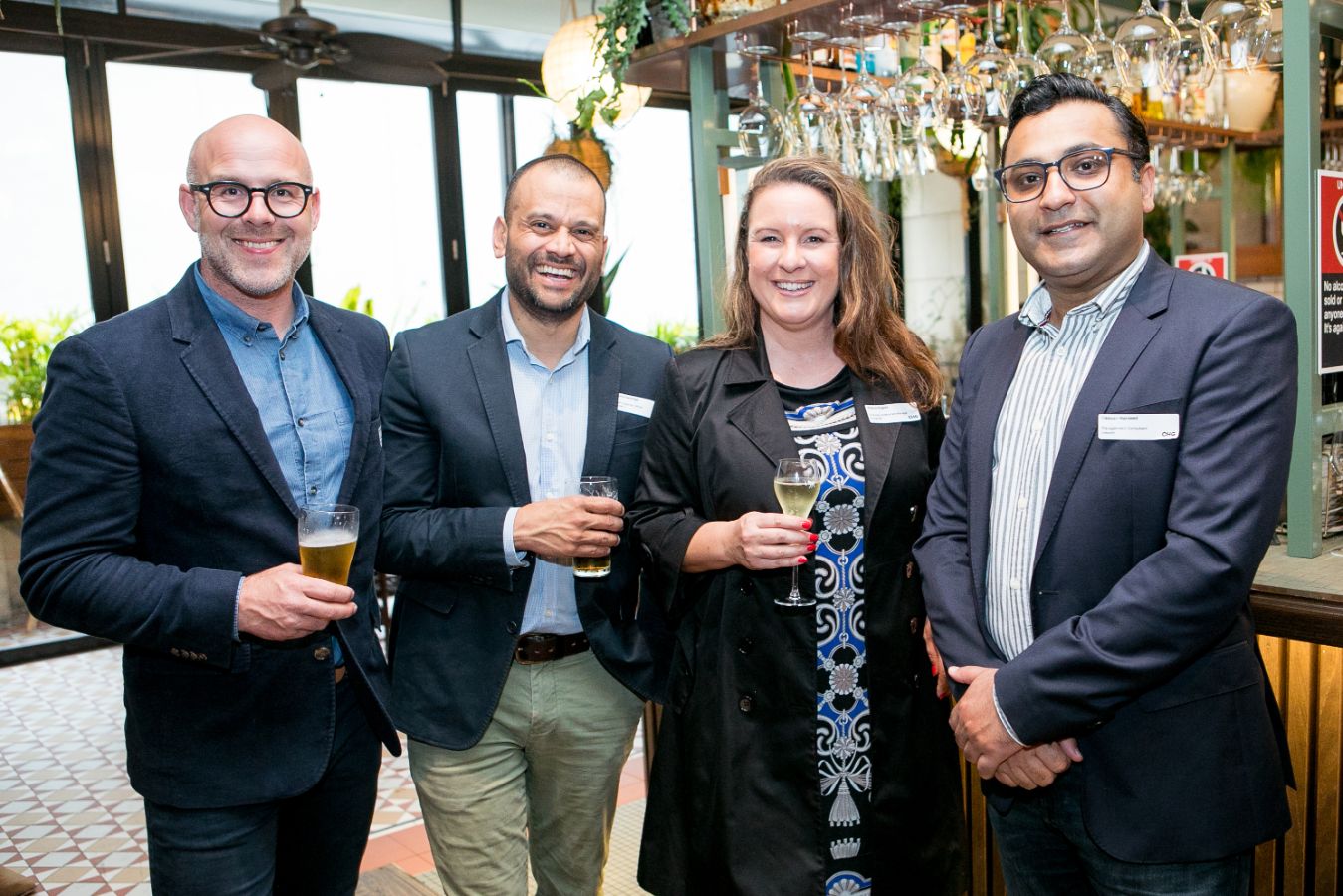Event write-up
CIO Insights on Redefining the Workplace, Winning the War for Talent
A group of experienced technologists discussed the challenges of CIOs and shared their insights on other hot topics at CHG-MERIDIAN's IT Leadership Panel and Networking Evening in Sydney. Read on to learn from the experience of CIOs.
In today’s fast-paced world, CIOs are at the digital helm, leading the charge and developing countless opportunities for businesses across all industries.
In fact, they’re tasked with embarking on a digital transformation journey, expected to drive innovation, redefine the workplace, deal with cost and budget pressures, foster sustainability initiatives, and even win the war for talent.
And there’s lots of pressure. The dramatic shift to a hybrid workplace (in-office and remote) is changing the game – forcing IT decision-makers to deliver - even ‘rethink’ - workplace technology implementations and programs to create a more positive culture and empower people.
These and other topics were discussed by a group of experienced technology thought leaders at a recent panel discussion in Sydney on behalf of CHG-MERIDIAN.
As part of the line-up, Kirk Downey, CHG-MERIDIAN’s Head of IT Asia Pacific; Claudio Salinas, CIO, Westfarmers Industrial; Nicola Dorling, former Enterprise Technology Partner, Deloitte; and Parth Gandhi, Group Chief Information Officer, John Sample Group took to the stage to reveal their lessons learned on the business transformation journey.
Takeaways
Advice for successful digital transformations
According to Nicola Dorling, a key element of successful digital transformation is focusing on the organisation's strategy and business model before implementing new technology. "Many organisations want to build into the technology, the existing business processes," she said. "So, if we're really transforming our business, why are we building exactly the same thing that we have today?". The key questions for organisations to consider in the planning phase are “what is the business model that you’re trying to get to? Where are you going to, and why are you going there?”.
Parth Gandhi acknowledged that not all digital transformations are successful, and that a key challenge is avoiding "spaghetti on the back" – a tangled mess of processes and systems that are difficult to untangle and improve. For a successful transformation, he recommends on focusing on the people side of transformation and engaging employees in the process to ensure success.
Kirk emphasised the need to strike a balance between technology change, organisational/people change, and process change. "Many transformations are nothing more than implementation projects," he said. "But transformation is a very valid topic. It’s about creating fundamentally different business outcomes or a step change in performance, not just an incremental improvement. A butterfly doesn’t come out of a cocoon and just walk faster than a caterpillar because it has longer legs. It’s fundamentally different. So, getting balance right is critical."
Digital transformation initiatives are fundamentally changing the way organisations do business. Digital transformation often involves large scale technology projects. However, these projects do not always have to be complex. Kirk Downey said the key to some of his most successful transformation projects was in fact keeping it simple.
“Transformation is a word used all over the place, and often it comes down to large scale IT implementations. For me, I’ve always looked for simplicity. A highlight of my transformation career was as CTO British Gas in the UK. We spent half a billion on ERP systems to simplify customer experience. There were 10,000 call centre agents. Keep things simple, keep it straight. Keep it small.”.
Attracting and retaining talent
In the midst of the talent shortage, IT leaders need to find ways to attract and retain skilled IT professionals. A key to tackling this issue is to focus on building a strong company culture and hiring the right people. Kirk Downey said, "It comes back to the culture you build, the people you hire, the way you assess whether they will fit in with the team. What your values are as a leader and as a collective team you put together." Creating a positive work environment and a strong sense of community and innovation within the workplace can go a long way in attracting and retaining top talent.
By creating a positive culture and empowering employees, organisations can win the war for talent and attract the best and brightest to their teams. On the topic of winning the war for talent, Claudio Salinas emphasised the importance of culture in attracting and retaining top talent. "Culture is king," he said. "As a leader, you have to lead the culture creation." He recommended establishing a framework for culture creation and encouraging employees to embrace a new way of working that is more flexible and adaptable. Claudio also spoke to the importance of upskilling employees and giving them the tools and permission to innovate and think differently.
Kirk highlighted the importance of providing personal choice for employees, such as choice of hours and location, to make them feel valued and engaged. Kirk also underlined the role of leadership in attracting and retaining talent, stating that “it is not solely about the technology or perks, but about inspiring and empowering employees to contribute to the success of the company”.
Digital transformation is about people
Digital transformation is often discussed in terms of the latest technologies and systems that are transforming the way businesses operate. However, as the panel emphasised, digital transformation is ultimately about the people who use and are impacted by these technologies.
Kirk shared with the group the importance of understanding the needs and challenges of the people who will be using a technology solution in order to deliver a better user experience. "Walk a mile in the shoes of the people you’re delivering for – look outside in," he said. "Go sit with the users, think about the users, rather than just looking at the functional side. We’re a world that’s becoming overloaded with information and technology and systems and processes and all kinds of complexity – distribution of workforce – and so if you don’t really understand what is driving these people and the issues, and the challenges they face, you won’t be able to improve that experience for them."
By focusing on the people side of things, organisations can make the process of digital transformation easier and more effective. In Parth Gandhi’s own words “You do digital transformation with your people, not to your people. So if you bring your people with you, then it makes the whole journey a lot simpler”. By keeping people at the core of digital transformation, a culture of innovation and collaboration, where employees are empowered to contribute to the success of the business, is created.
Gallery
- Image 1 / 27
- Image 2 / 27
- Image 3 / 27
- Image 4 / 27
- Image 5 / 27
- Image 6 / 27
- Image 7 / 27
- Image 8 / 27
- Image 9 / 27
- Image 10 / 27
- Image 11 / 27
- Image 12 / 27
- Image 13 / 27
- Image 14 / 27
- Image 15 / 27
- Image 16 / 27
- Image 17 / 27
- Image 18 / 27
- Image 19 / 27
- Image 20 / 27
- Image 21 / 27
- Image 22 / 27
- Image 23 / 27
- Image 24 / 27
- Image 25 / 27
- Image 26 / 27
- Image 27 / 27
START A CONVERSATION WITH A SPECIALIST
Our team are ready to support you with technology finance and management services. Get in touch today!
Todd Fortescue
Vice President of Sales, ANZ
- CHG-MERIDIAN Australia Pty Ltd
- Suite 31.02, Level 31, 1 Market Street
- 2000 Sydney
- +61 29409 8200
- info_anz@chg-meridian.com



.png)


.png)

